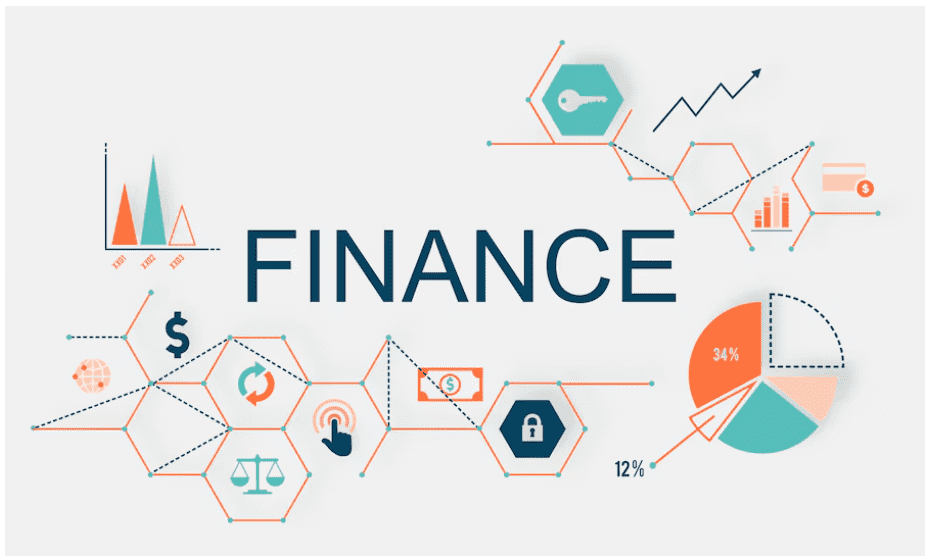
Is SIP a Safe Investment Today?
Introduction
Systematic Investment Plans (SIPs) have become a preferred choice for millions of investors, particularly those looking for a disciplined and structured approach to wealth creation. With SIPs, investors put a fixed amount into mutual funds at regular intervals, allowing them to benefit from rupee cost averaging and the power of compounding. However, as markets fluctuate and economic conditions change, many investors wonder: is SIP still a safe investment today?
To answer this question, we will analyze the safety of SIP investments, considering market risks, economic trends, and the long-term benefits of investing through SIPs.
Understanding SIPs and Their Mechanism
A Systematic Investment Plan is not an investment instrument in itself but a method of investing in mutual funds. It enables investors to buy fund units at different market levels, spreading the investment cost over time and reducing the impact of market volatility.
Benefits of SIPs
Rupee Cost Averaging: Since the investment occurs at regular intervals, investors buy more units when prices are low and fewer when prices are high. This strategy helps in mitigating short-term market fluctuations.
Power of Compounding: The longer you stay invested, the greater the compounding effect, which significantly enhances wealth creation.
Disciplined Approach: SIPs encourage a habit of regular investing, which can lead to better financial discipline over time.
Affordability: Unlike lump-sum investments, SIPs allow small investments, making it accessible to individuals across income brackets.
Diversification: Mutual funds offer diversification by investing in multiple securities, reducing the overall investment risk.
Evaluating the Safety of SIPs in Today’s Market
1. Market Volatility and SIP Performance
Stock markets have always been volatile, impacted by economic events, geopolitical tensions, interest rate fluctuations, and other factors. However, SIPs inherently mitigate the risk of investing at market highs by spreading investments over time. This strategy cushions investors against market downturns and ensures better returns in the long run.
Even in bearish markets, SIPs help investors accumulate more units at lower costs, which can yield higher returns when the market recovers. Thus, despite market fluctuations, SIPs remain a relatively stable option for long-term investors.
2. Impact of Inflation on SIPs
Inflation erodes the purchasing power of money, making it crucial to invest in instruments that offer returns above inflation. Historically, equity mutual funds, where most SIPs are invested, have outperformed inflation over extended periods. However, for short-term goals, investing in equity-based SIPs may be risky as inflation and market conditions can impact returns.
To counter inflation risks, investors can opt for debt mutual fund SIPs or balanced funds, which provide stability and moderate returns.
3. Liquidity and Accessibility
Unlike traditional investments like Fixed Deposits or PPFs, SIPs offer higher liquidity. Investors can redeem their funds anytime, although equity mutual funds may have exit loads if withdrawn within a specified period. This flexibility makes SIPs a safer option for those who need emergency liquidity.
4. Risk of Capital Loss
One common concern with SIPs is the potential loss of capital, especially when investing in equity mutual funds. While SIPs do not eliminate risk entirely, they significantly lower the probability of loss through diversification and regular investment.
However, if investors choose SIPs in debt funds or hybrid funds, they can minimize capital risk. It is crucial to align SIP investments with risk appetite and financial goals.
5. Historical Performance of SIPs
Past performance is not a guarantee of future results, but historical data shows that SIPs have generated substantial returns over long durations. For instance, investors who continued their SIPs even during the 2008 financial crisis or the 2020 pandemic crash saw significant gains once markets rebounded.
SIPs in equity mutual funds have delivered annualized returns of around 12-15% over the last two decades, making them a lucrative investment option for long-term wealth creation.
Key Factors to Consider Before Investing in SIPs Today:
While SIPs offer multiple benefits, investors should be mindful of certain factors before investing:
1. Investment Horizon
SIPs work best for long-term goals such as retirement planning, children’s education, or wealth accumulation. A minimum horizon of 5-10 years is ideal for significant gains.
2. Fund Selection
Choosing the right mutual fund is critical to SIP success. Investors should analyze fund performance, expense ratio, fund manager expertise, and portfolio allocation before selecting a fund.
3. Risk Appetite
Different SIP funds come with varying risk levels. Equity SIPs are riskier but offer higher returns, while debt SIPs provide stability with lower returns. Investors should assess their risk tolerance before investing.
4. Diversification Strategy
Investing in multiple SIPs across asset classes (equity, debt, hybrid) can reduce risks and balance returns. Diversification prevents overexposure to a single market sector.
5. Market Timing and SIP Adjustments
While SIPs eliminate the need for market timing, investors can consider increasing SIP contributions during market corrections to maximize gains.
Top 10 Best Performing SIP Mutual Funds of 2024: Invest Smart, Grow Wealth
Systematic Investment Plans (SIPs) have long been a favored strategy for investors aiming to build wealth over time through disciplined, regular investments in mutual funds. As we reflect on the year 2024, certain SIP mutual funds have distinguished themselves by delivering exceptional returns. Here's a curated list of the top 10 best-performing SIP mutual funds in India for 2024:
1. Quant Small Cap Fund
- Category: Small Capmotilaloswal.com+6amritmoney.com+6livemint.com+6
- 1-Year SIP Return: 40.66%amritmoney.com+5livemint.com+5motilaloswal.com+5
- Overview: This fund focuses on small-cap companies, offering high growth potential for investors with a higher risk appetite. basunivesh.com+8motilaloswal.com+8livemint.com+8
2. Bank of India Small Cap Fund
- Category: Small Capblog.fincover.com+11amritmoney.com+11motilaloswal.com+11
- 1-Year SIP Return: 33.79%livemint.com+1economictimes.indiatimes.com+1
- Overview: Investing primarily in small-cap stocks, this fund has showcased robust performance, making it attractive for aggressive investors.
3. Nippon India Small Cap Fund
- Category: Small Capblog.fincover.com
- 1-Year SIP Return: 32.03%etmoney.com+5livemint.com+5economictimes.indiatimes.com+5
- Overview: Known for its diversified portfolio in the small-cap segment, this fund has consistently delivered impressive returns. StockEdge Blog+3motilaloswal.com+3livemint.com+3
4. Edelweiss Small Cap Fund
- Category: Small Capamritmoney.com+2etmoney.com+2livemint.com+2
- 1-Year SIP Return: 30.70%livemint.com+1StockEdge Blog+1
- Overview: This fund focuses on identifying high-growth potential companies in the small-cap space, offering substantial returns to its investors. motilaloswal.com
5. Canara Robeco Small Cap Fund
- Category: Small Cap
- 1-Year SIP Return: 29.82%livemint.com
- Overview: With a strategic approach to small-cap investments, this fund has provided consistent performance, appealing to growth-oriented investors.
6. Tata Small Cap Fund
- Category: Small Capblog.fincover.com+11amritmoney.com+11motilaloswal.com+11
- 1-Year SIP Return: 29.75%motilaloswal.com+2livemint.com+2angelone.in+2
- Overview: This fund aims to capitalize on the growth opportunities in the small-cap sector, delivering notable returns over the year. angelone.in+5motilaloswal.com+5StockEdge Blog+5
7. Kotak Small Cap Fund
- Category: Small Cap
- 1-Year SIP Return: 28.98%livemint.com
- Overview: Focusing on quality small-cap companies, this fund has managed to provide substantial returns to its investors.
8. Invesco India Smallcap Fund
- Category: Small Cap
- 1-Year SIP Return: 28.72%livemint.com
- Overview: This fund's diversified approach in the small-cap segment has resulted in impressive performance, attracting many investors.
9. Axis Small Cap Fund
- Category: Small Cap
- 1-Year SIP Return: 28.39%livemint.com
- Overview: Known for its meticulous stock selection in the small-cap arena, this fund has delivered consistent returns.
10. ICICI Prudential Smallcap Fund
- Category: Small Capmoneycontrol.com
- 1-Year SIP Return: 27.95%livemint.com
- Overview: This fund's strategic investments in emerging small-cap companies have yielded substantial returns for its investors. livemint.com
Key Takeaways:
High Returns: The small-cap category has been a significant contributor to high SIP returns in 2024, reflecting the growth potential of emerging companies.
Diversification: Investors have benefited from diversified portfolios within these funds, mitigating risks associated with individual stocks.livemint.com+5StockEdge Blog+5amritmoney.com+5
Long-Term Focus: While these returns are impressive, it's essential to maintain a long-term investment horizon to navigate market volatilities effectively.
Conclusion:
The year 2024 has been remarkable for SIP investors, especially those invested in small-cap mutual funds. The funds listed above have demonstrated exceptional performance, offering substantial returns to their investors. However, it's crucial to align your investment choices with your financial goals, risk tolerance, and investment horizon. Consulting with a financial advisor can provide personalized guidance tailored to your specific needs.
Frequently Asked Questions (FAQs) on SIP Investment:
1. What is the minimum amount required to start an SIP?
Many mutual funds allow SIPs to start with as little as ₹500 per month, making it accessible to all investors.
2. Are SIPs better than lump-sum investments?
SIPs help in averaging costs and reducing market timing risks, making them ideal for long-term investments, whereas lump-sum investments may be beneficial when markets are at lower levels.
3. Can I stop my SIP anytime?
Yes, SIPs offer flexibility, and investors can stop or pause their SIP at any time without major penalties.
4. What happens if I miss an SIP installment?
Missing an SIP installment does not attract penalties, but continuous failures may lead to cancellation by the fund house.
5. Can I change my SIP amount?
Yes, investors can increase or decrease their SIP amount through the step-up SIP or by modifying their existing plan.
6. Are SIP returns guaranteed?
No, SIP returns depend on market performance, and there are no fixed returns, especially in equity SIPs.
7. Is SIP tax-free?
SIP investments in ELSS (Equity Linked Savings Scheme) offer tax benefits under Section 80C, but other mutual fund SIPs are subject to capital gains tax.
8. How long should I continue my SIP?
For maximum benefits, SIPs should be continued for at least 5-10 years to harness the power of compounding and rupee cost averaging.

Author : Uttam Bisht
14 February, 2024 | 11:35 PM
Mr. Uttam Bisht is a partner with the Delhi Branch of the firm. He has more than 8 years of experience and specializes in Statutory Audit. Expertise in Tax audit of various enterprises. Extpertise internal audit of Private enterprises. Audit planning through business understanding, preliminary analytical procedures, determining materiality levels, and preparation of audit program and pre-audit checklist . He is well conversant with the auditing standards issued by ICAI. .
Tags
Recent Blogs

06 February, 2026 | 07:28 AM
Decoding Union Budget 2026

13 May, 2025 | 07:42 AM
Top 5 Tips for Filing ITR 4 Easily

08 May, 2025 | 01:09 AM
Simple Guide to Filing ITR1 Sahaj

30 April, 2025 | 05:51 AM
Mortgage Rates Today

26 April, 2025 | 10:23 PM
How Bank's are scamming you - Fixed vs Reducing Rate

02 March, 2025 | 05:32 AM
15 Benefits of ITR Filing
Popular Blogs

14 February, 2024 | 11:43 PM
Top 15 ITR Filing Documents

21 March, 2024 | 12:29 AM
The Road to Financial Freedom: Leveraging Tax Services for Long-Term Success

27 February, 2024 | 11:20 PM
Why Filing ITR with No Income is Smart

14 February, 2024 | 11:39 PM
21 Ways to Save Tax From Salary

10 October, 2024 | 10:15 PM
Exploring the 15 Financial Websites You Should Bookmark Right Now

14 February, 2024 | 11:35 PM
